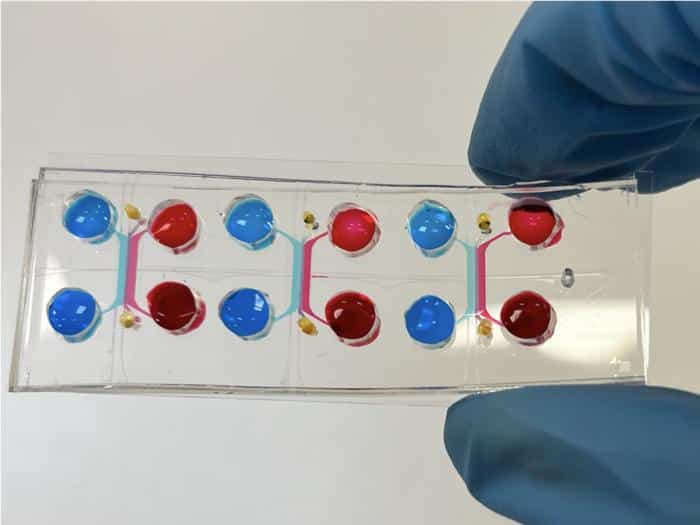If I have melanoma, is it effective to treat it with immunotherapy? Previously difficult to know in advance, a team of researchers has developed a "gut chip" that predicts the efficacy of immunotherapy for melanoma patients, published in the journal Nature Biomedical Engineering.
The research team is made up of researchers from the European Institute of Oncology and the Politecnico di Milano. Luigi Nezi, team leader of the Department of Experimental Oncology at the European Institute of Oncology, and Professor Marco Rasponi, from the Department of Electronics, Information and Bioengineering at the Politecnico di Milano, led the study.
It has long been known that there is an interaction between the microbiota and immunotherapy. Immunotherapy triggers an immune response throughout the body, which is a systemic effect; At the same time, local reactions can also occur in the intestines, where bacteria in the body accumulate in large numbers. However, in the past, to study this local reaction in the intestine, we could only rely on animal models, but animal models have many shortcomings. After all, from a clinical standpoint, there is no reason to have a colonoscopy and colon biopsy in a patient undergoing melanoma immunotherapy. Moreover, intestinal inflammation is one of the main side effects of immunotherapy, often leading to forced interruption of treatment.
As a result, the researchers came up with the idea of applying "organ-on-a-chip" technology to colon research, and made an innovative design to focus on the link between gut microbiota and immunotherapy.
A patented technology of Politecnico di Milano, uBeat, is the basis for this new "gut-on-a-chip" model. Originally used to simulate heart muscle contraction, uBeat was later able to simulate the biomechanical conditions of the knee joint. This time, the researchers used it to recreate the typical peristalsis of the intestine. The continuous movement generated by uBeat can distinguish the major intestinal flora in human organoids, creating a very realistic intestinal environment on the chip. The ability to drive such complex biological processes by engineering alone holds new promise for many fields, especially in the creation of in vitro humanized models that are expected to replace animal experimentation.

Figure: "Gut chip" predicts the effect of melanoma immunotherapy (Source: semiconductordigest)
Study lead author Mattia Ballerini explains: "We found that melanoma patients who did not respond to immunotherapy had a distinct pro-inflammatory profile in their gut microbiota. These features disrupt the integrity of the intestinal epithelial barrier and promote the production of molecules that regulate the immune system.”
"When I was doing research in the U.S., I had the idea of looking at the impact of the gut microbiota on the response to immunotherapy in melanoma patients," Luigi Nezzi said. Now, in collaboration with Politecnico di Milano, we have succeeded in creating a new device that allows us to study in detail the molecular mechanisms of the interaction between the microbiota and intestinal epithelial cells. These features can be used clinically as predictors of response to immunotherapy, classifying patients. In this way, treatment can be directed to the patients most likely to benefit from it, improving the quality of life of patients and saving significant money for the national healthcare system. In addition, with our intestinal chip, patients who are resistant to treatment can avoid unnecessary side effects, and doctors have the opportunity to give them more effective treatments. It's as simple as taking a sample of the patient's stool and testing it on a microarray of the intestine. We are also using this system to study the molecular mechanisms of immunotherapies for other cancers, for which the benefits of immunotherapy are currently limited. We hope to develop innovative therapies based on the regulation of the gut microbiota, so that more patients can receive effective treatment.”
The results of this study are of great significance, not only bringing new hope for the treatment of melanoma patients, but also opening up a new direction for future cancer treatment research. It is believed that with the continuous efforts of scientific researchers, more cancer patients will benefit from it.






